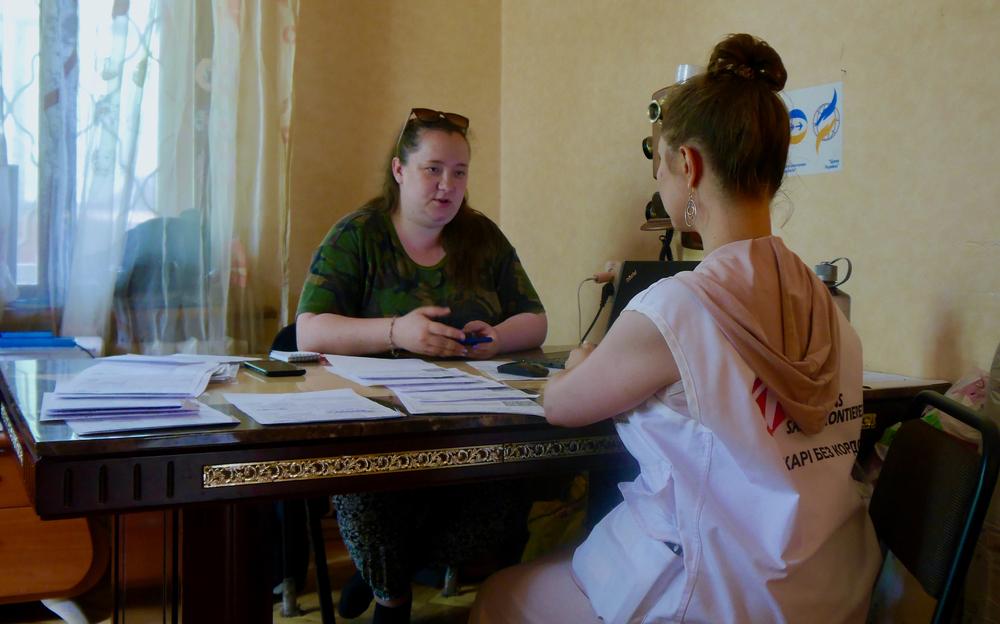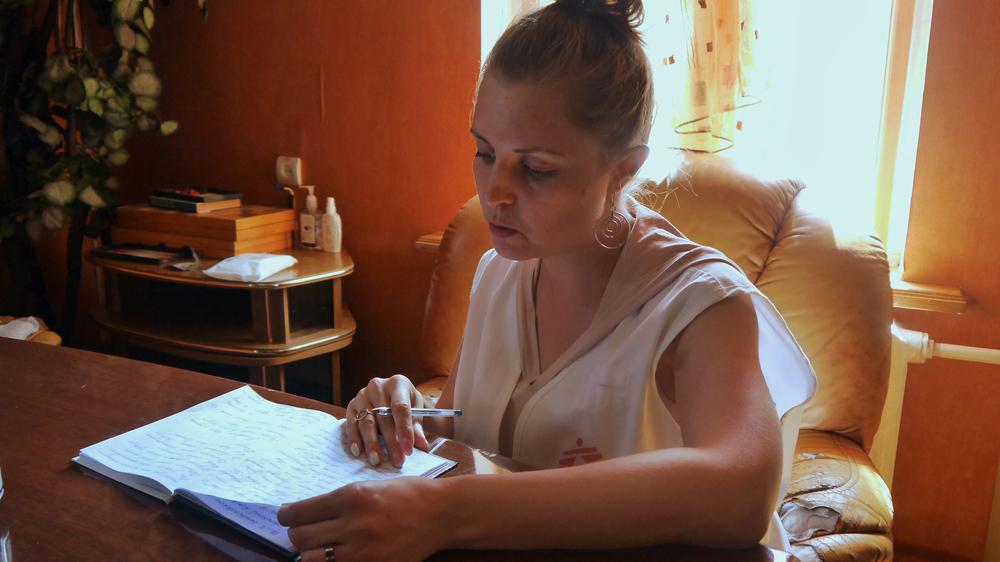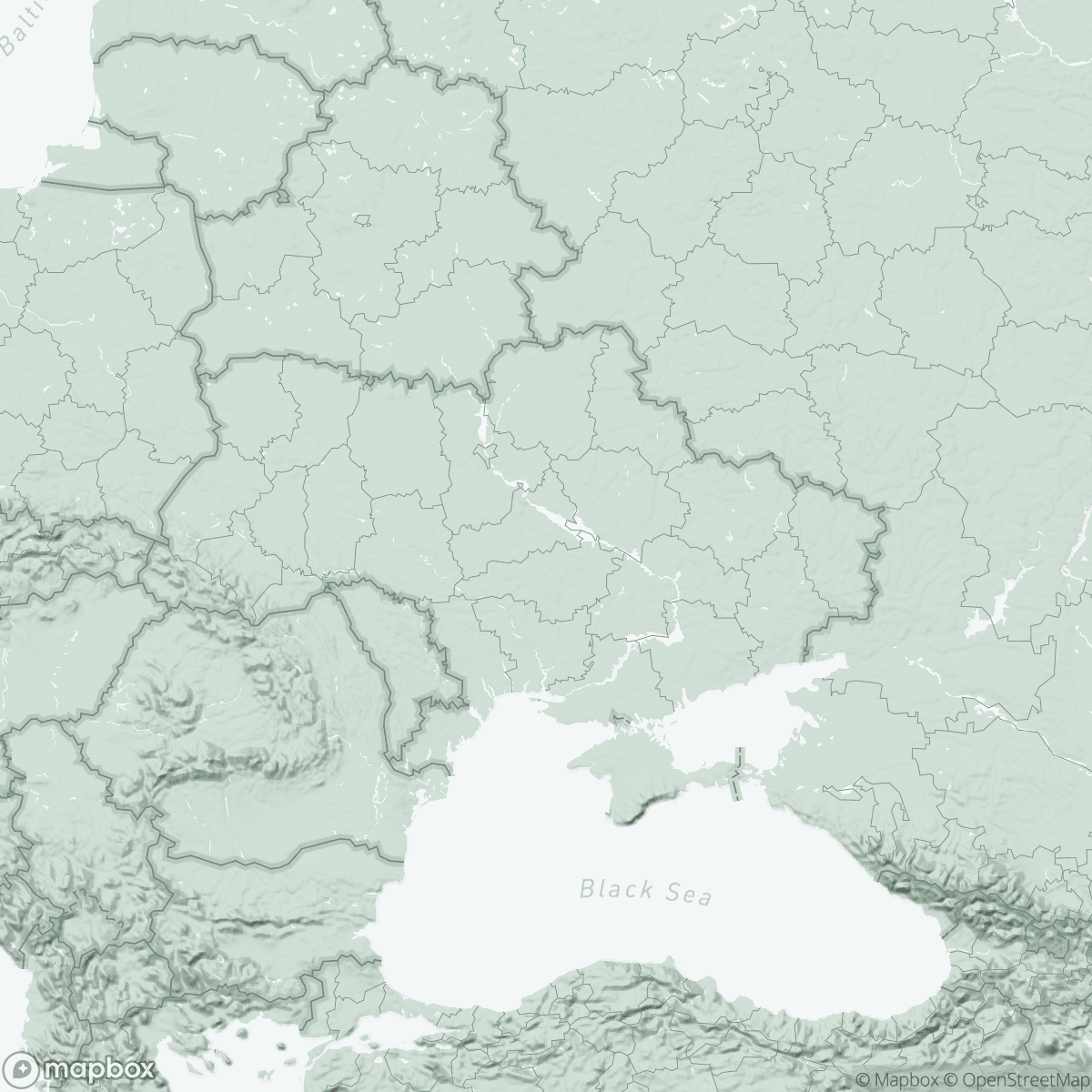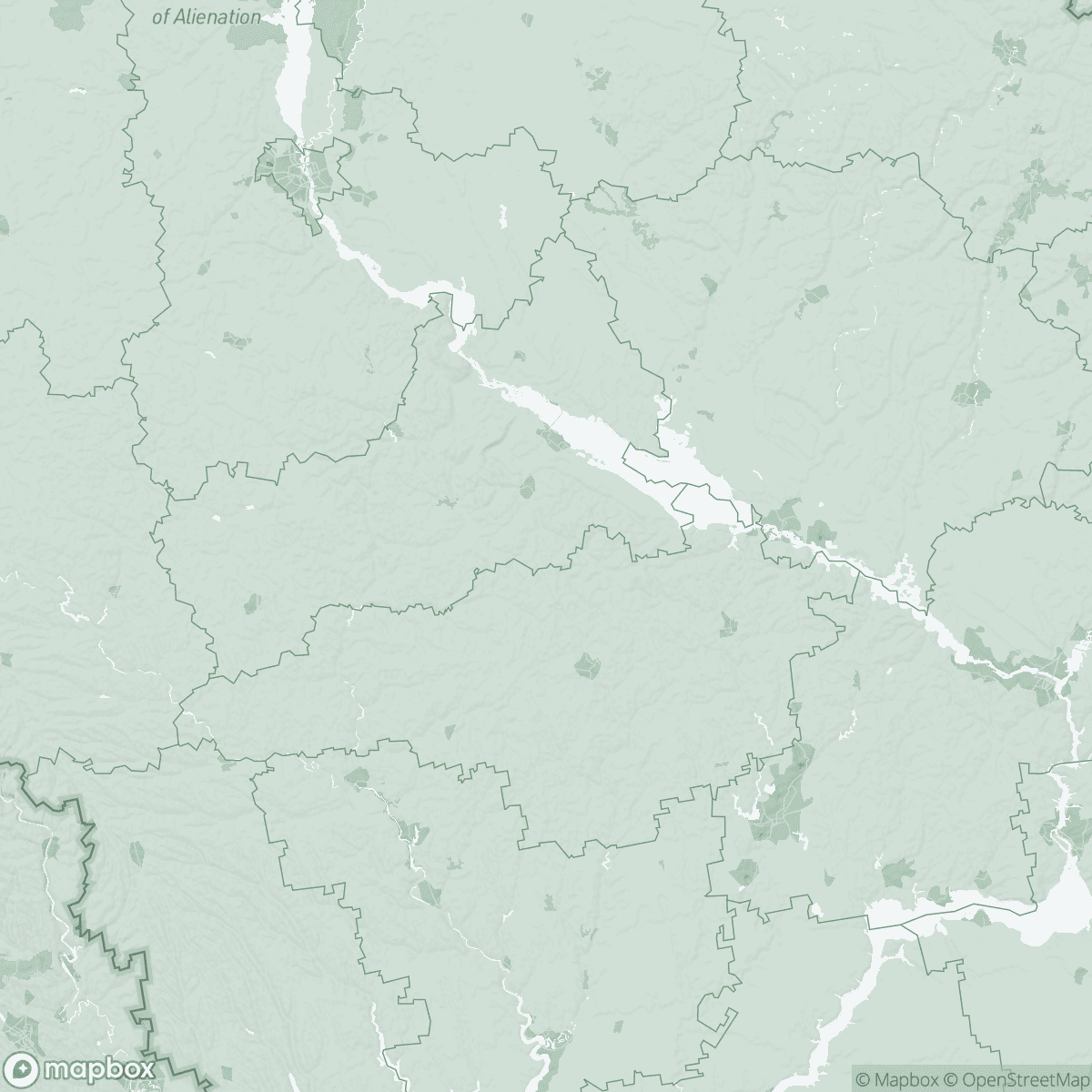
Somewhere to turn: Psychological support in Zernove shelter
In 1 click, help us spread this information :
The shelters in Kharkiv region of Ukraine are filled with people who have fled occupied territories or areas heavily affected by continuous shelling from the Russian-Ukraine war. They have left behind their homes, community, and life as they knew it. Within the relative sanctuary of the shelter, they receive assistance with essential needs, and find respite and space to contemplate their next steps.
Médecins Sans Frontières (MSF) is partnering with the local volunteer organisation, Way of Ukraine, who run a transit shelter in Zernove in Kharkiv region. The shelter receives people coming from Krasnopillya humanitarian corridor, where an average of 100 people per day cross the border between Russia and Ukraine, coming mainly from occupied territories in Donetsk and Luhansk.
Approximately 20 per cent of people crossing the border, travel initially to Kharkiv city, where they are hosted in Zernove transit shelter for an average of 1-2 days, before continuing their journey to other locations in the east part of Ukraine.
In the first months after the opening of the transit shelter, MSF provided mental health support to people in need; either through group sessions or private consultations for those requiring a more personal exchange.
One of these patients is Vitaly, a 75-year-old man from Kupyansk in the Kharkiv region, who endured occupation and relentless shelling for seven months, and now temporarily resides in the shelter. Vitaly made the difficult decision to leave Kupyansk after shelling shattered the windows and damaged the roof of his apartment. Situated a mere 50 kilometres from the Russian border, Kupyansk city now lays in ruins.
“Everything is decimated – there is no registry office, no notary, no bank, no school, no kindergarten, no store. It's a desolate landscape,” laments Vitaly.
There is a prevailing sense of despondency among people in the shelter. Many have lost their homes, and while some receive assistance from relatives in other Ukrainian cities or abroad, a sense of uncertainty and isolation remains.

Our encounters encompass a wide spectrum of individuals coping with various experiences. Some faced violence, others left due to sheer mental exhaustion – unable to endure the unrelenting shelling any longer. They yearn to rebuild their lives, to find a semblance of stability,” explains Yuliya Timchenko, MSF community engagement supervisor.
Olena*, a 70-year-old woman from Oleshky, recalls Russian soldiers occupying the abandoned houses as makeshift bases. Olena also reluctantly left her home and everything behind when she fled in pursuit of safety.
"It was harrowing. I used to cycle to work, always hurrying due to the constant threat of explosions,” shares Olena. My children live in Odessa, and I haven't seen them since the fighting escalated. The first thing I want to do upon reuniting is to embrace my granddaughter,” Olena continues, her voice quivering as tears well up.
Despite all the challenges caused by the war, a sense of camaraderie prevails.
Amidst their exhaustion, people are rallying together, organising themselves to take charge of cooking and cleaning. It's a testament to their resilience and unwavering spirit,” says MSF community engagement supervisor, Yuliya.

Six months have passed since the shelter's inception, with the past few marked by a flurry of efforts to aid displaced individuals. By the end of November, almost 3,000 people had found refuge within these walls, where crucial necessities – ranging from medical and legal assistance, to psychological support – are coordinated.
After providing essential psychosocial support directly in the shelter during the first few months of its opening, MSF has started to assist Way of Ukraine to implement those activities themselves. Through the financial support of MSF, the organisation has hired a psychologist, social worker and a nurse to assist people in the shelter. MSF psychologists conducted training and provided follow up of patients with the psychologist.
In total, 276 people in the shelter have received mental health support – 75 through individual consultations and the remainder through 50 group sessions that have been held.
Additionally, MSF is covering the costs of the rent of the shelter and the fuel used to implement evacuations. We have also donated washing machines and dryers, heaters, beds and other furniture, blankets, small appliances, clothing, as well as medical supplies for healthcare consultations that are being provided by the nurse
* Pseudonym used for security reasons.

